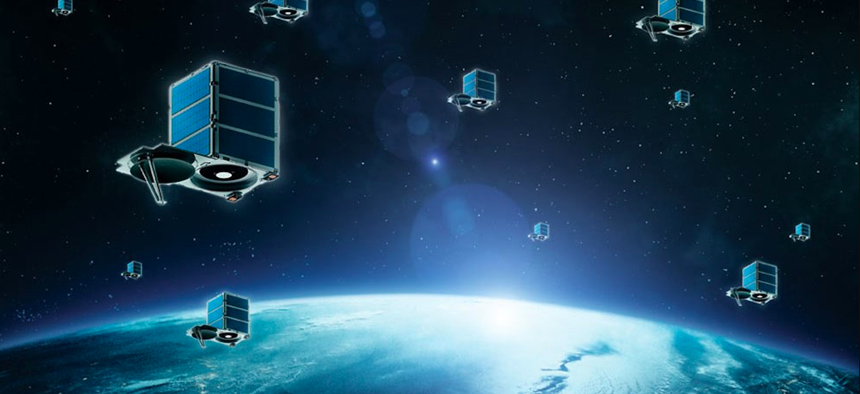San Francisco: Satellites play a crucial role in our daily lives, storing and transmitting GPS data, military intelligence, and even financial information. However, these space-based assets are becoming increasingly attractive targets for hackers, raising significant concerns about cybersecurity in space. Photo Credits: Alamy Stock Photo
Imagine a hacker typing away on their laptop, successfully breaching a satellite’s defences. While this scenario might sound like something out of a movie, the reality is that space cybersecurity is becoming a serious issue. With over 6,700 active satellites in orbit by the end of 2023, and the number rapidly increasing, the potential for a cyberattack on these systems is a growing concern.
How Could a Satellite Be Hacked?
Most satellites orbit the Earth relatively close to home in Low Earth Orbit (LEO), between 99 and 1,243 miles above the surface. Despite their proximity, physically accessing them is nearly impossible, but cyberattacks don’t require a physical presence in space.
Satellites could be compromised in several ways, from physical attacks like cutting off power to more sophisticated methods like kinetic anti-satellite (ASAT) weapons, which involve physically colliding with a satellite using missiles, drones, or other satellites. There’s also the potential for non-kinetic attacks, such as installing malware through proximity operations, where two satellites approach each other to transfer data. Although these scenarios are hypothetical, the U.S. Air Force's "Hack-a-Sat" event in 2023 demonstrated that hacking a satellite is possible, with three teams successfully breaching a satellite's security.
What Could Happen if a Satellite Were Hacked?
While no satellite has been hacked yet, the consequences of such an event could be devastating. Satellites are integral to national security, with many military operations relying on them for positioning, navigation, and timing, as well as for storing sensitive intelligence. Beyond the military, satellites support a wide range of industries, from agriculture to logistics, finance, and even entertainment. A successful cyberattack on a satellite could disrupt essential services, leading to widespread chaos.

Current Security Measures and Challenges
Given the potential risks, you might wonder why satellites aren't more frequently hacked. The answer lies in a combination of deterrents, including the threat of retaliation and existing, though limited, regulations. However, the regulatory framework governing space cybersecurity is still in its infancy.
On a national level, some countries, like the UK, have implemented cybersecurity strategies for space operations. But internationally, there’s no universally recognized cybersecurity law for space. The 1967 Outer Space Treaty, while promoting peaceful activity in space, is not legally binding. The United Nations Office for Outer Space Affairs and the International Telecommunications Union also touch on space security, but their regulations are not comprehensive or enforceable.
As the number of satellites in orbit continues to grow, and our reliance on them increases, the need for robust global cybersecurity regulations in space becomes more urgent. Without such measures, the risk of satellite hacking—and the potentially catastrophic consequences - will only continue to rise.